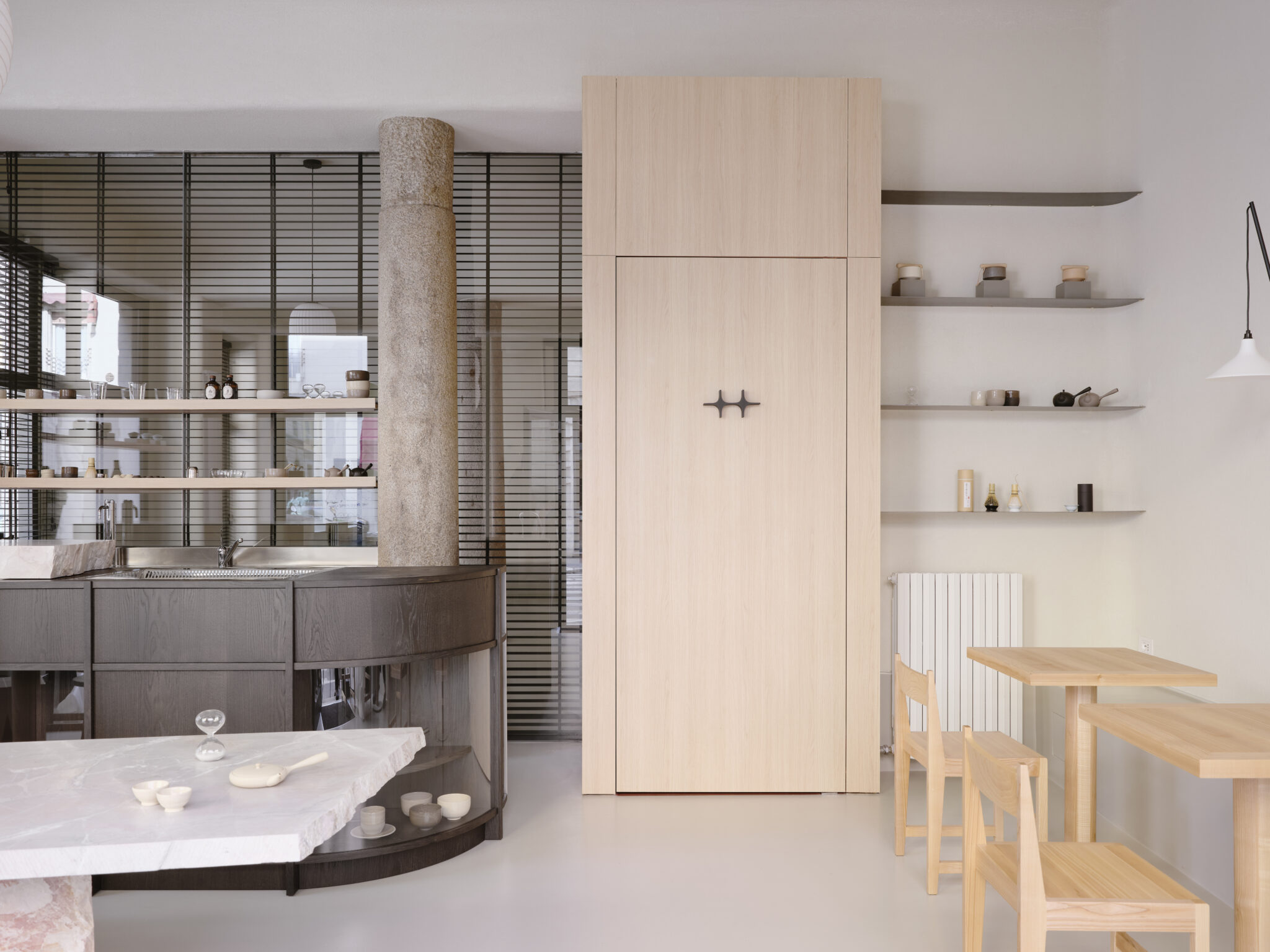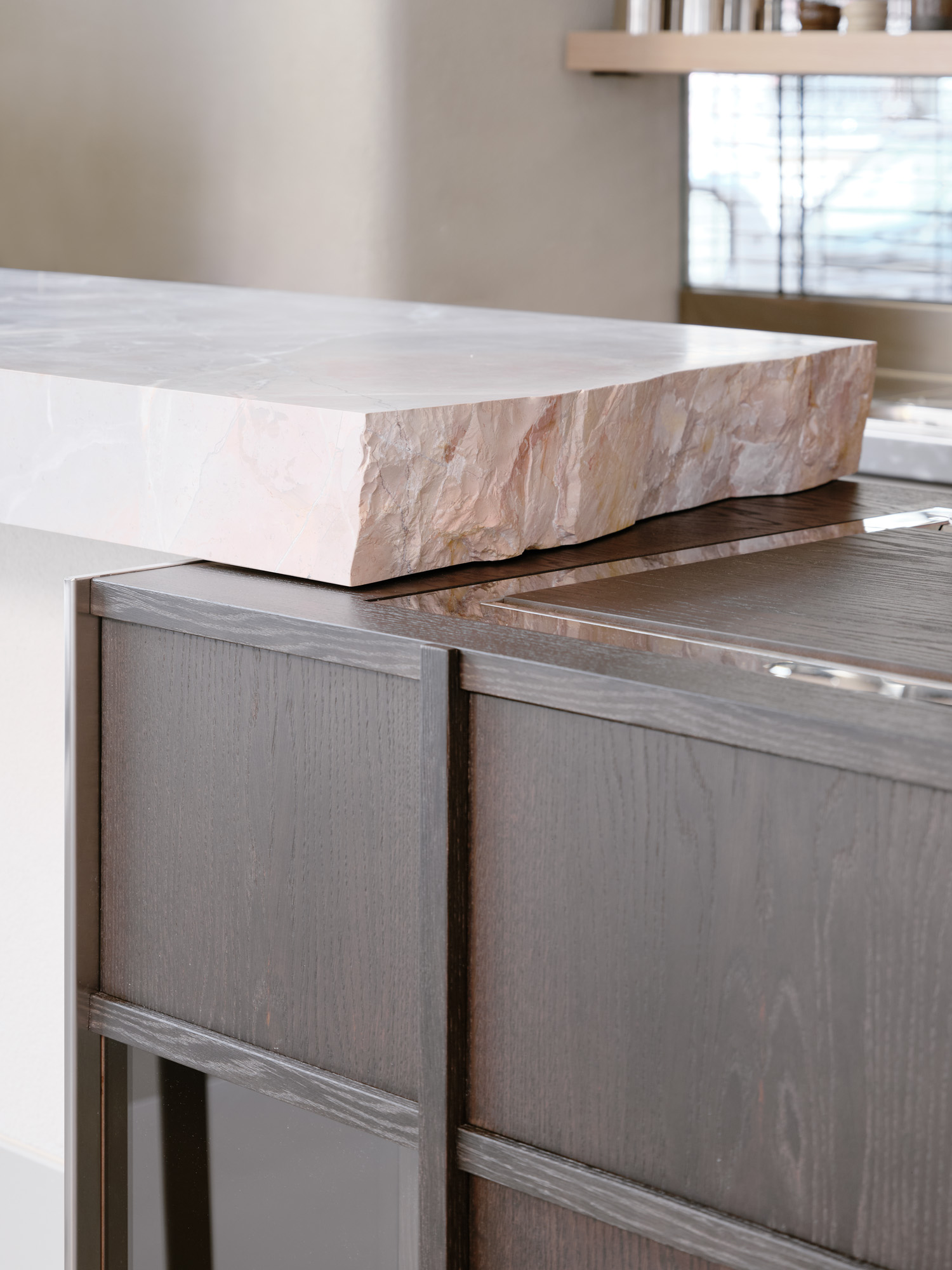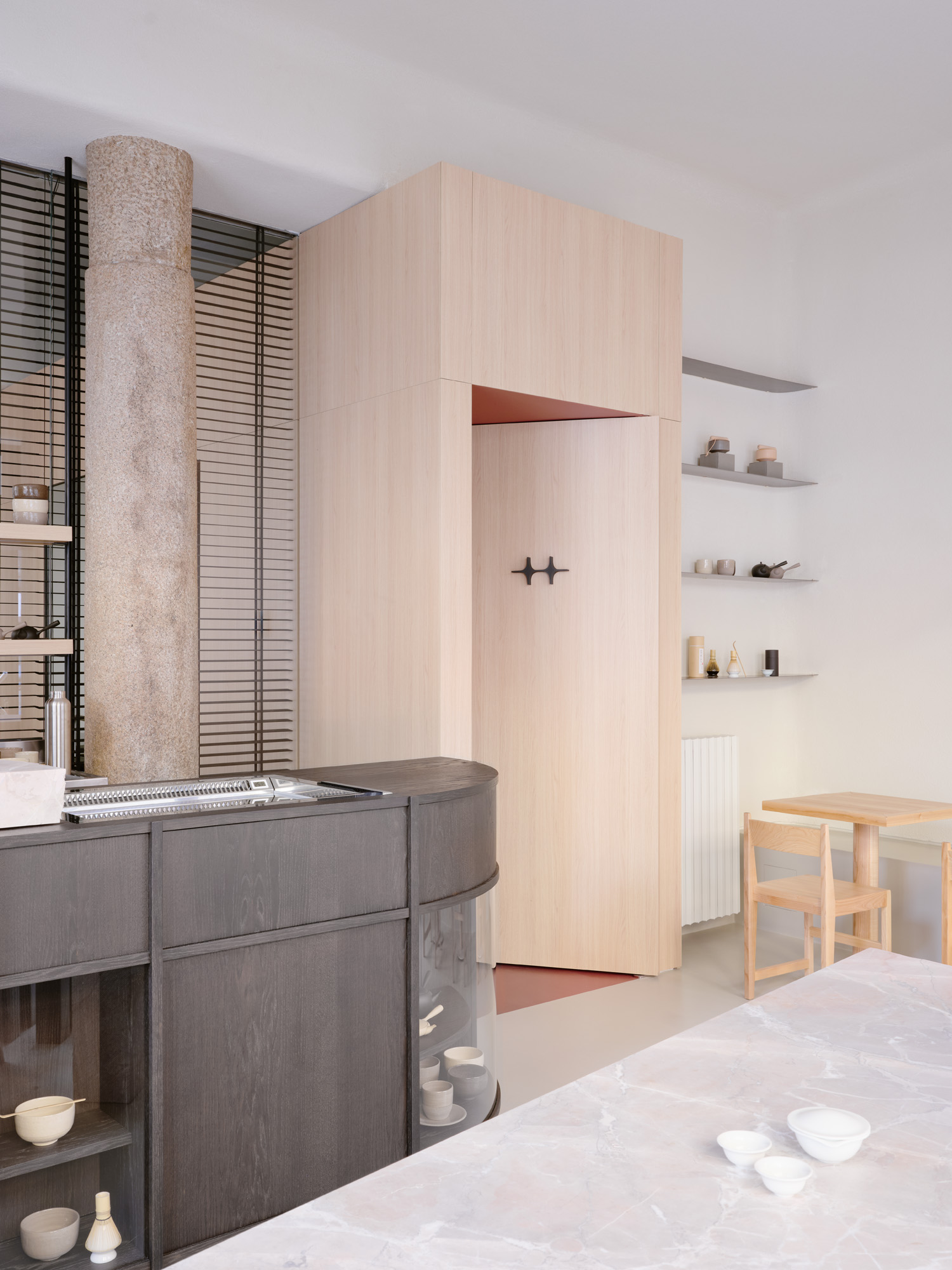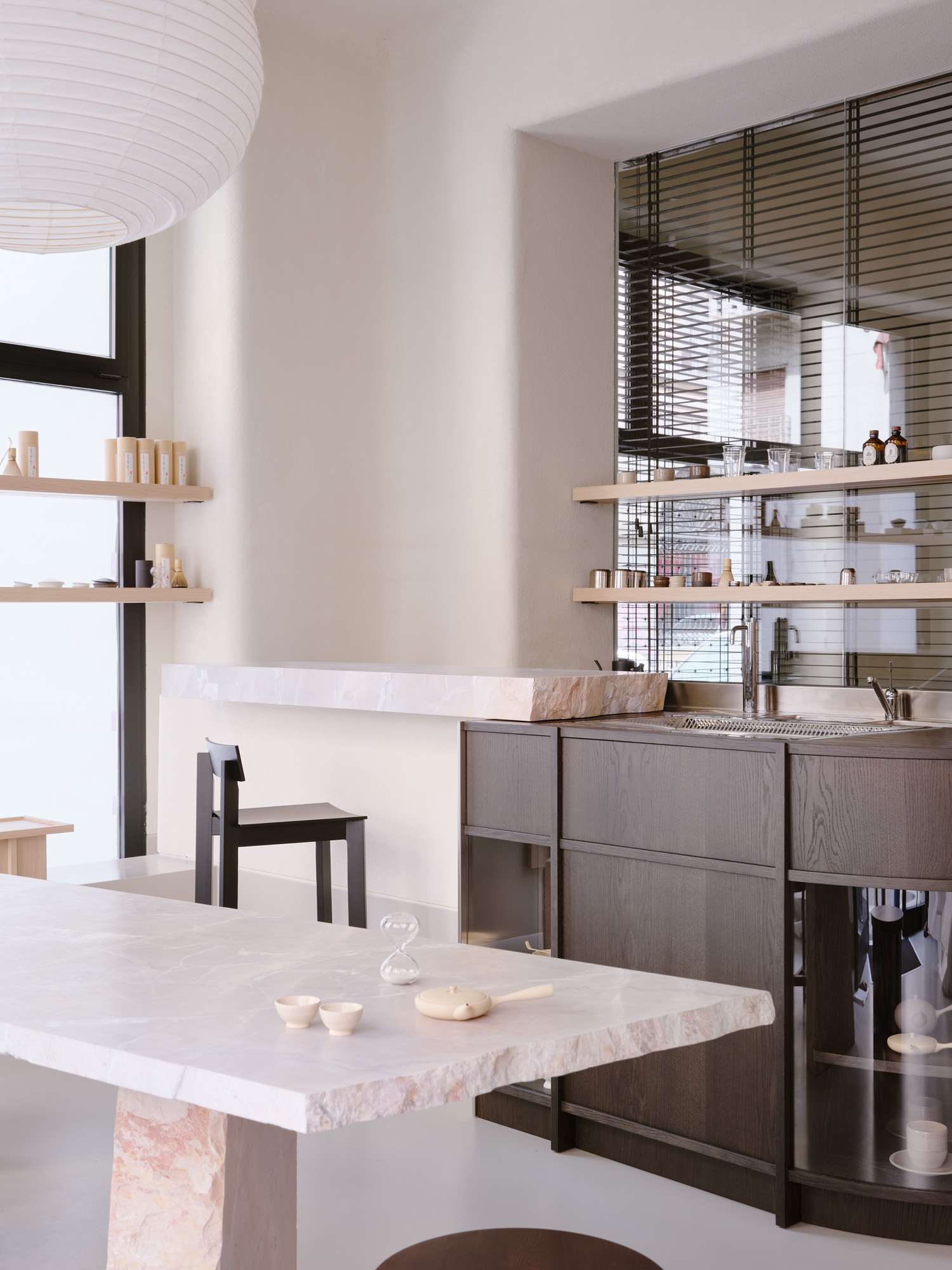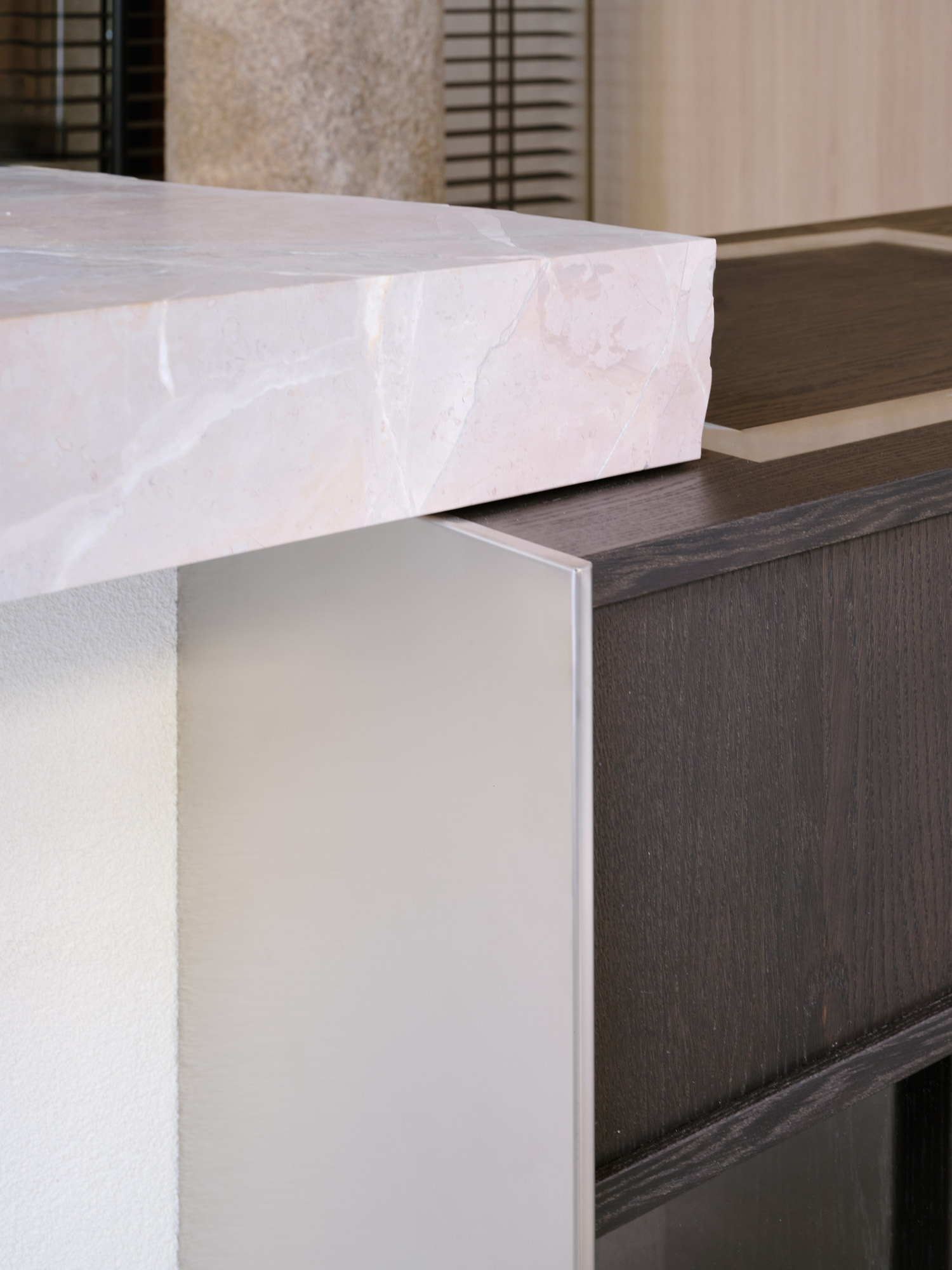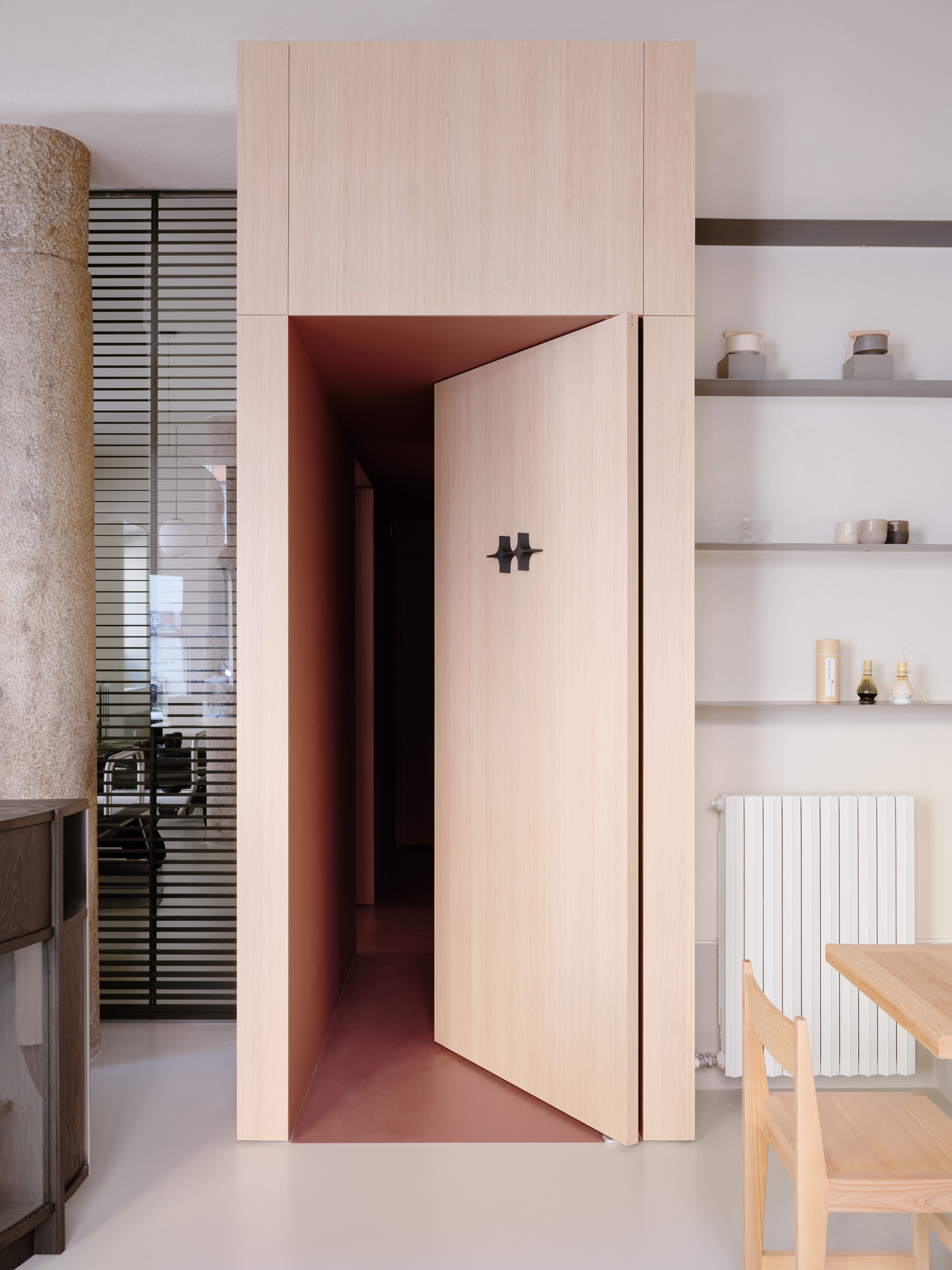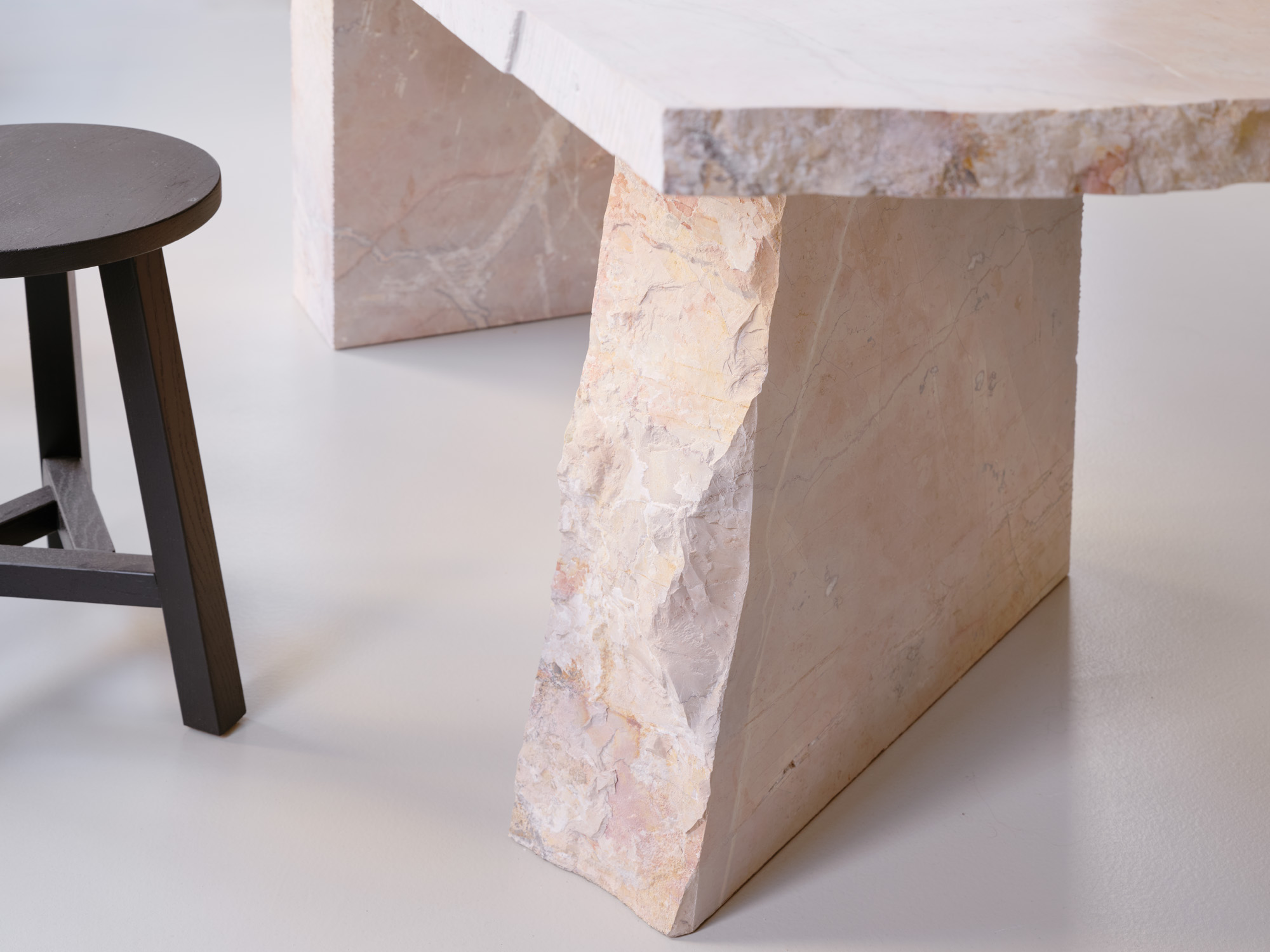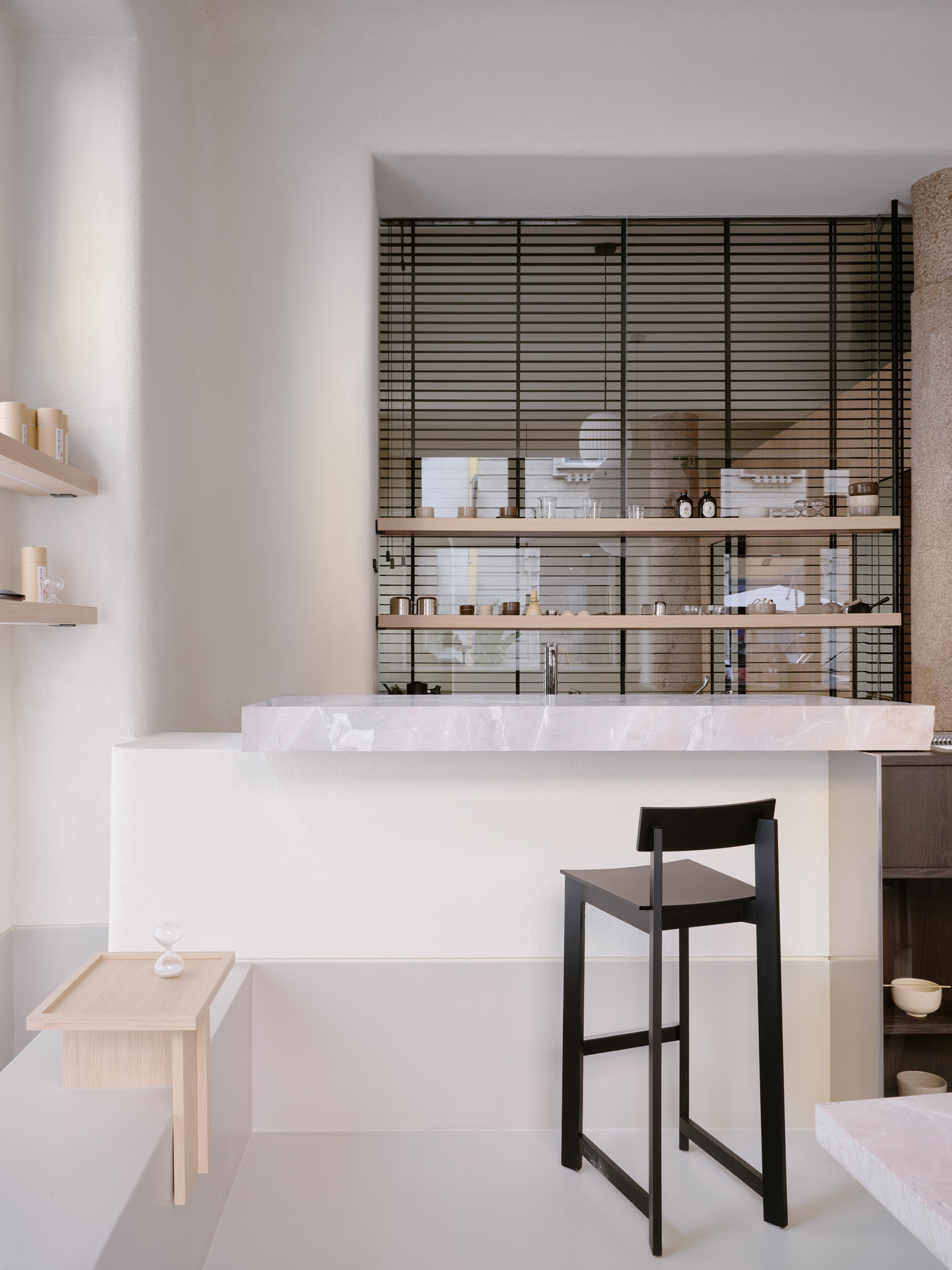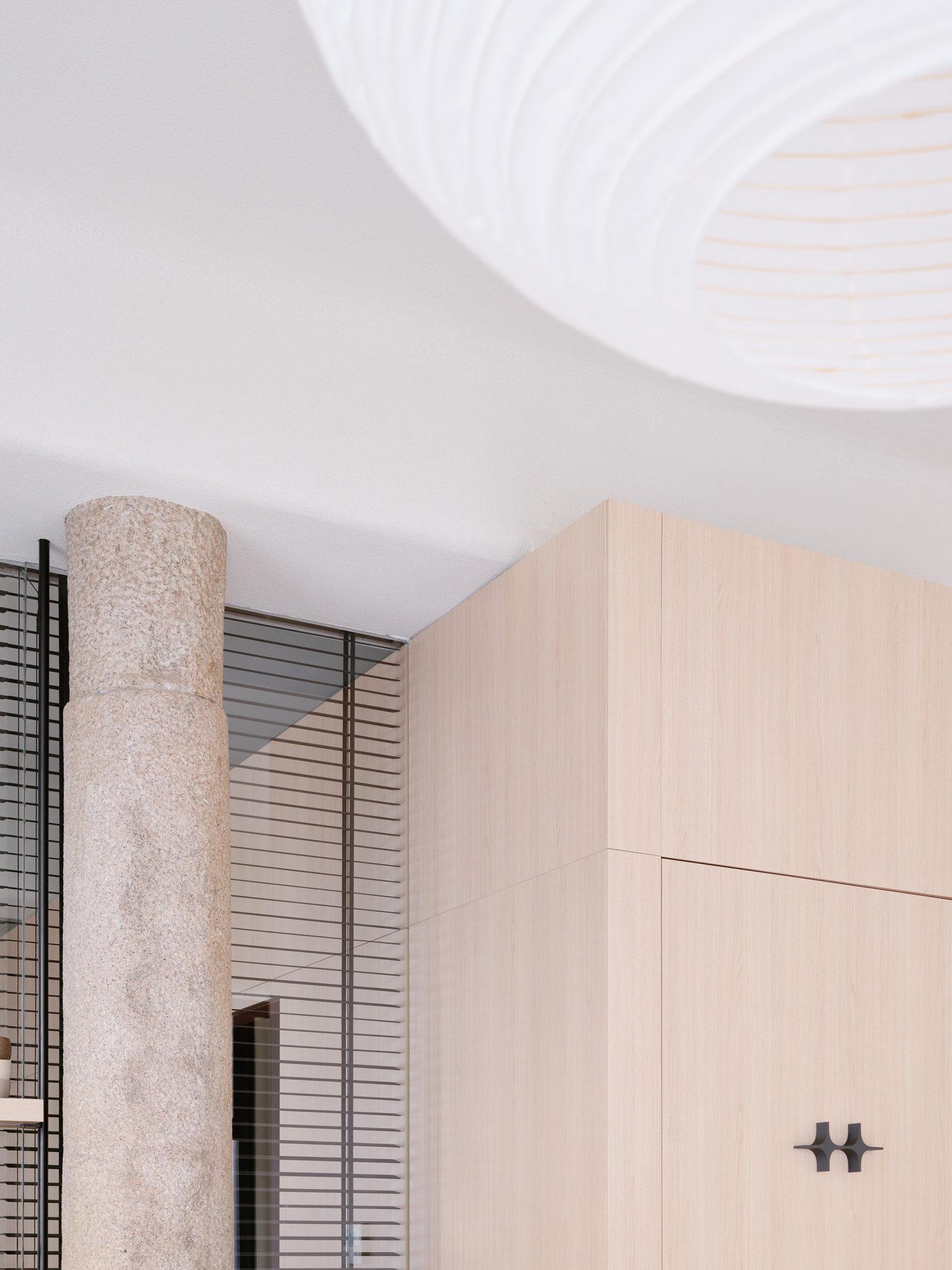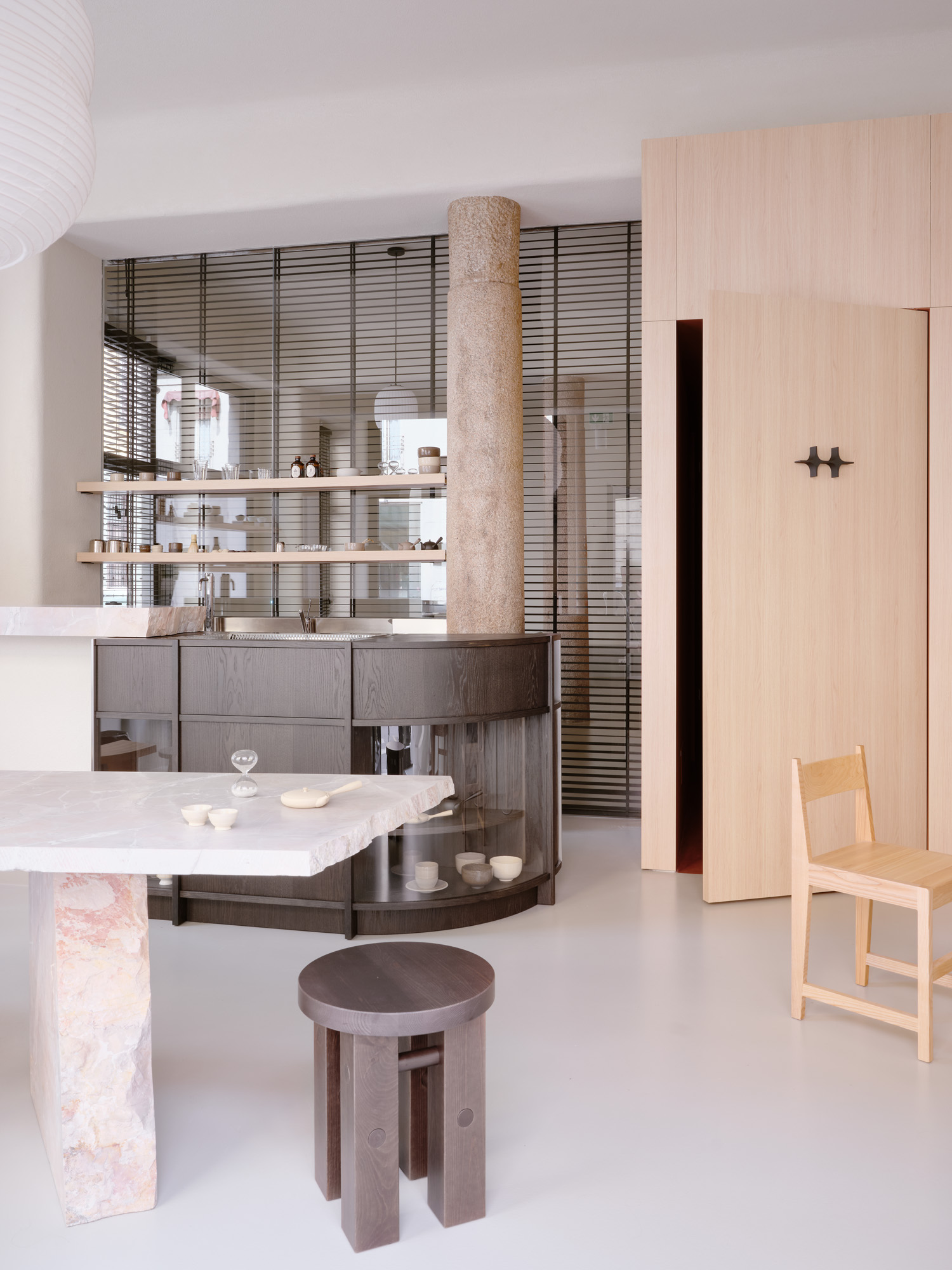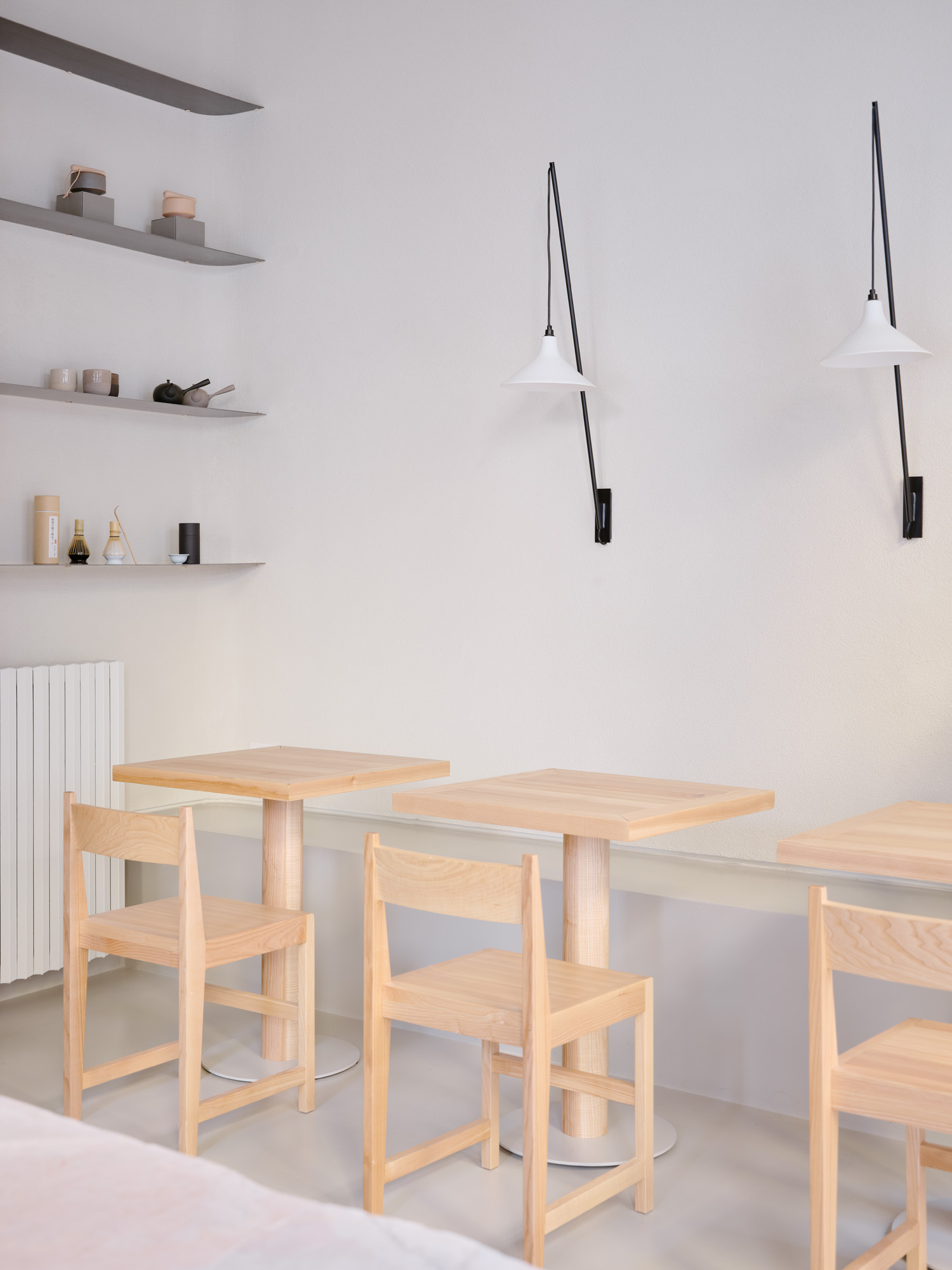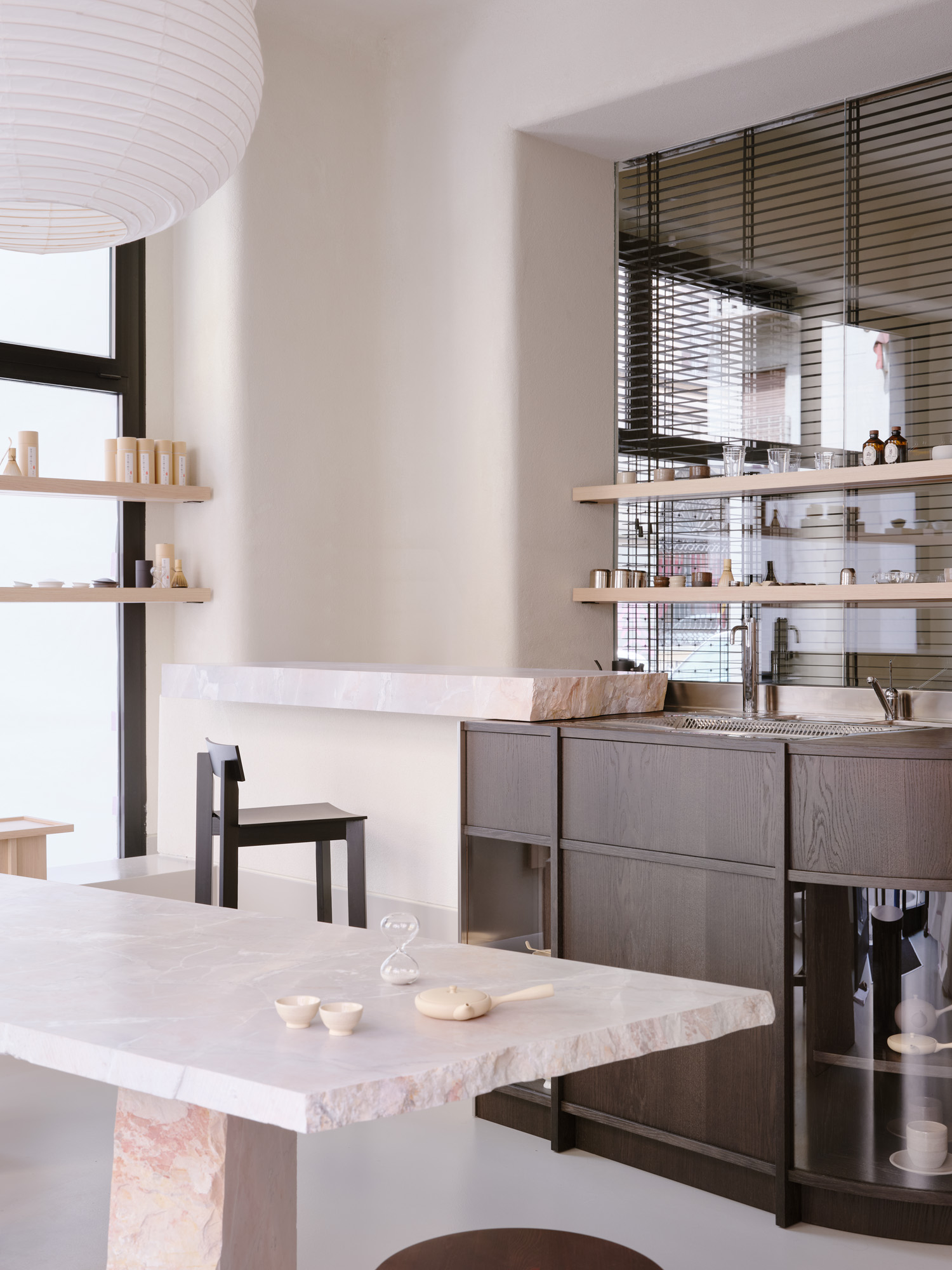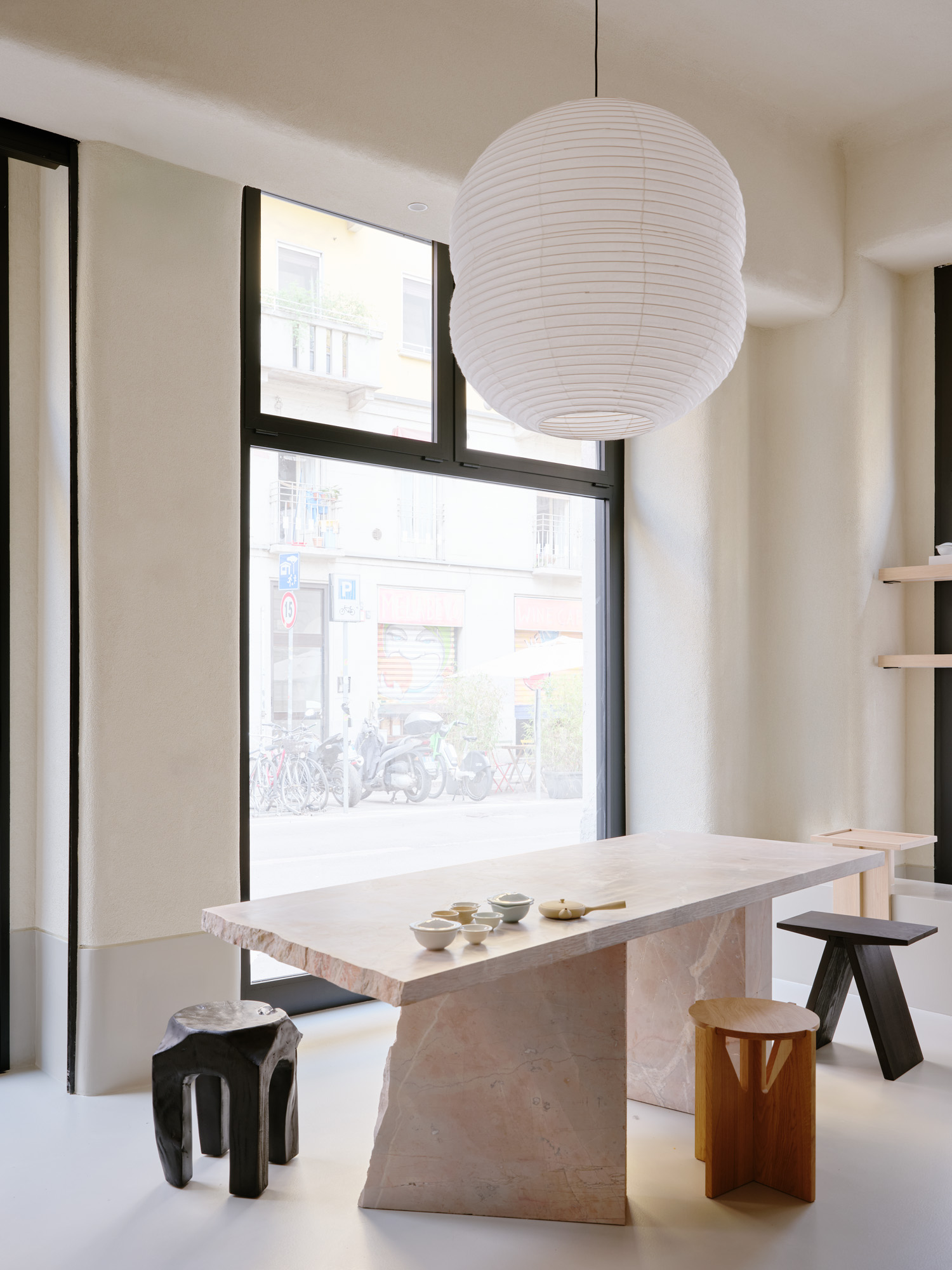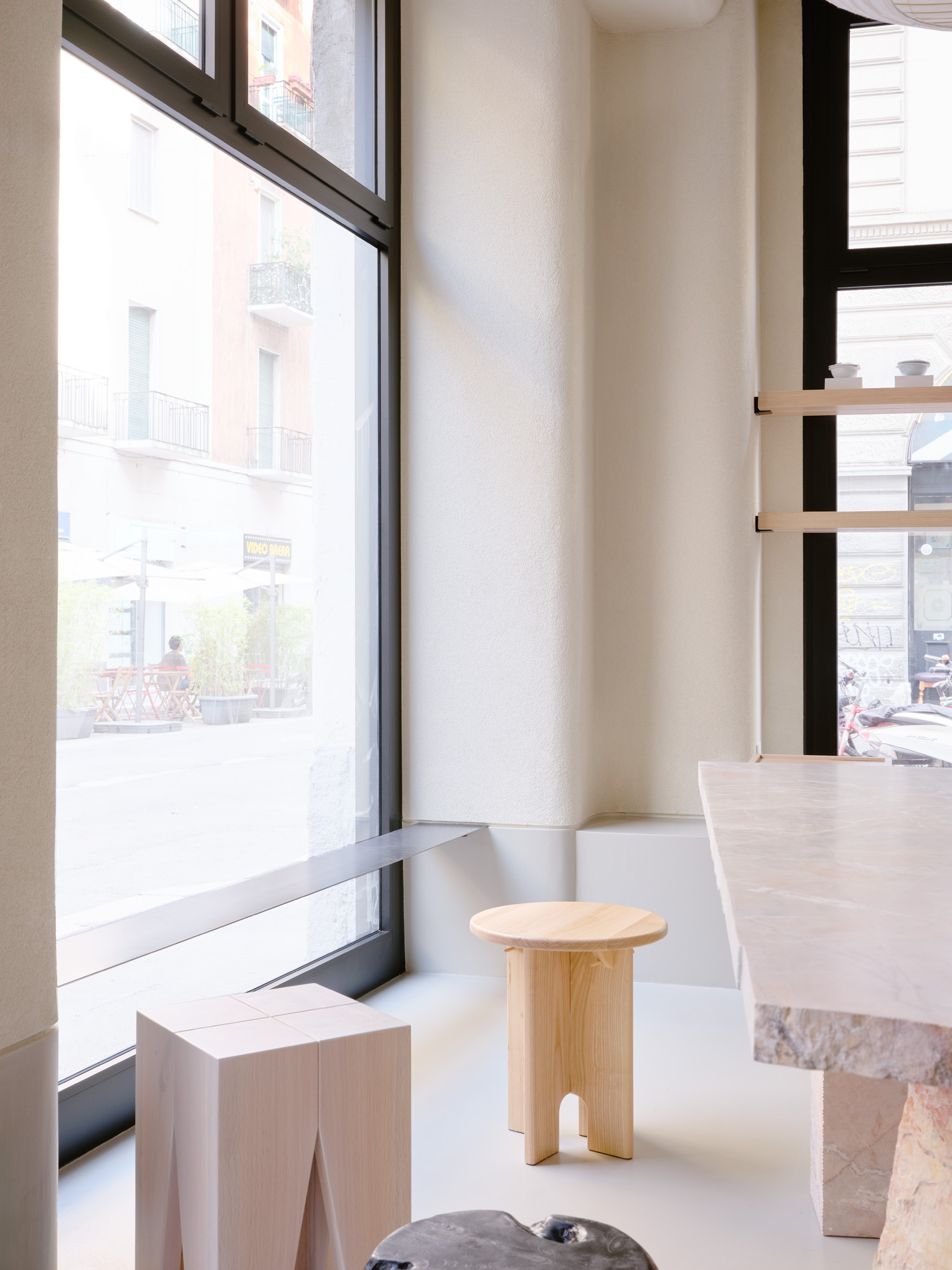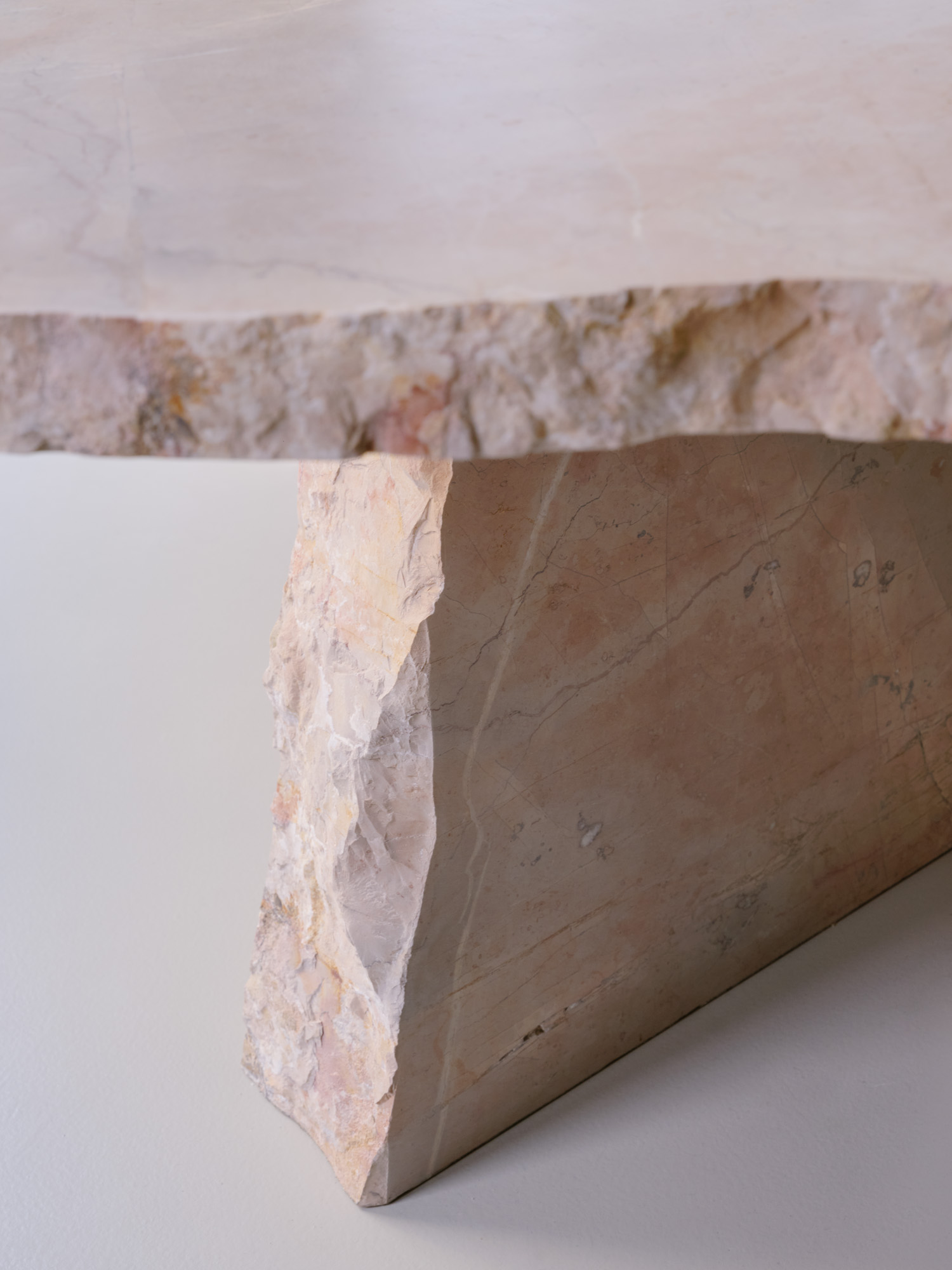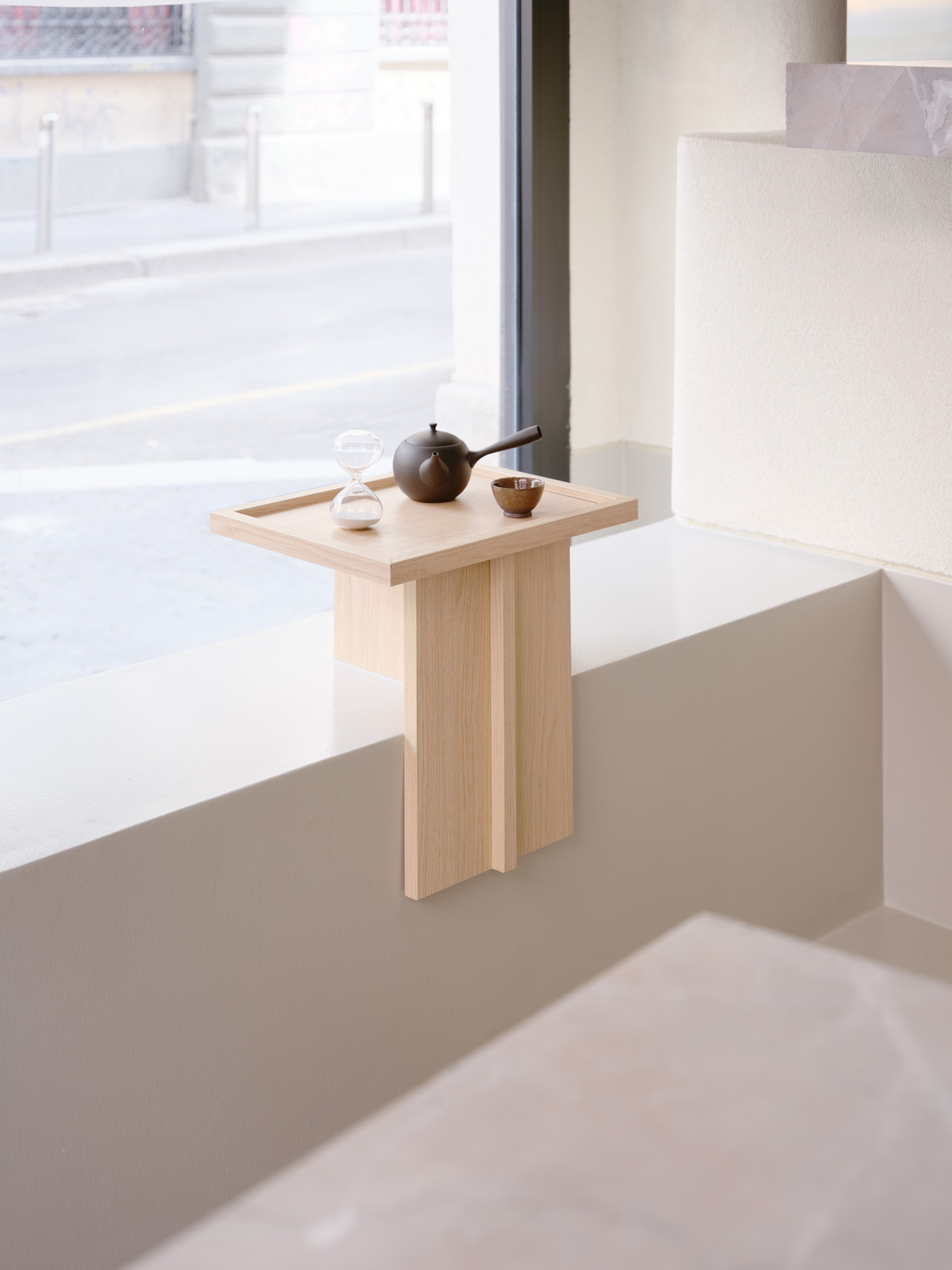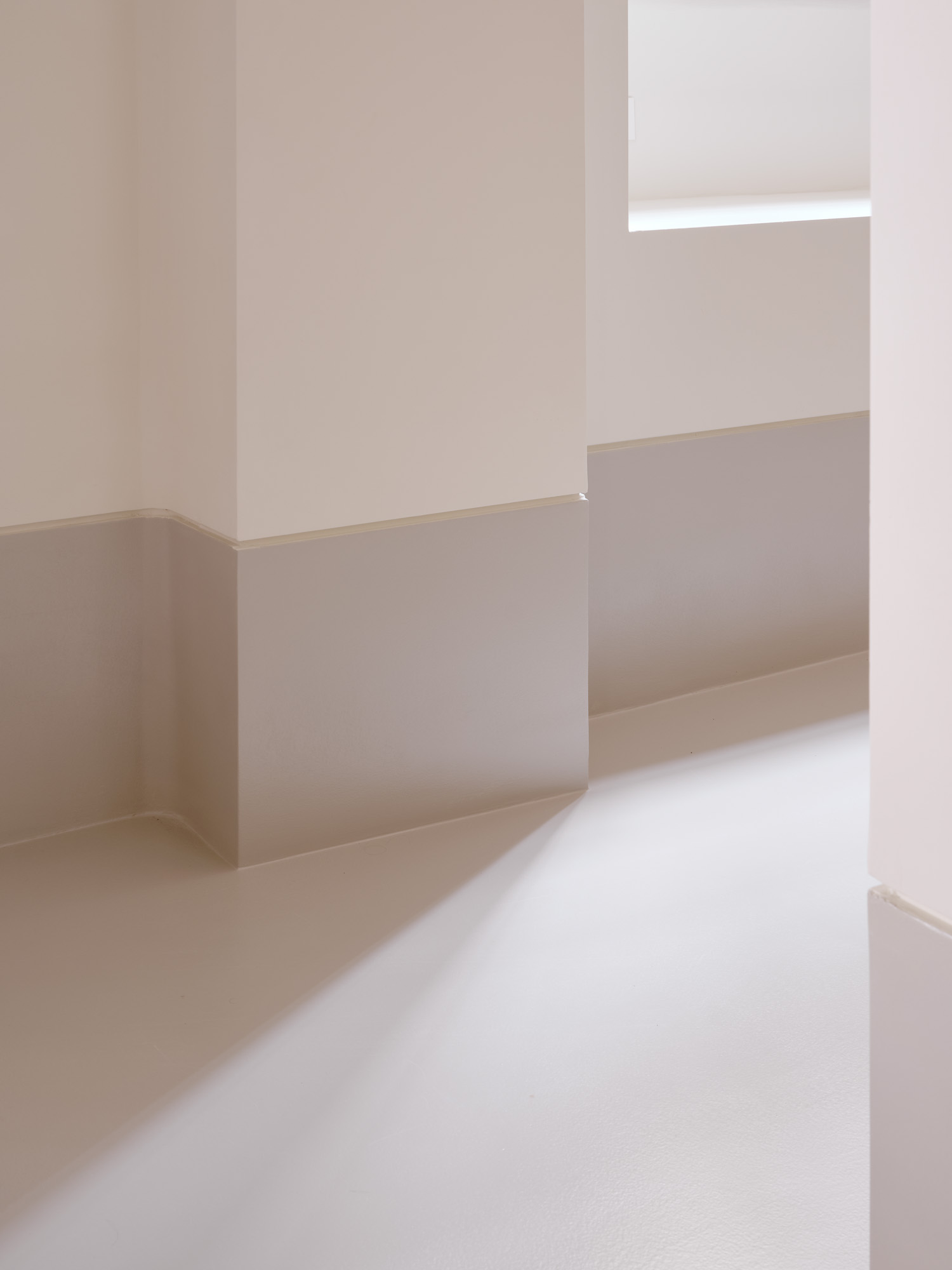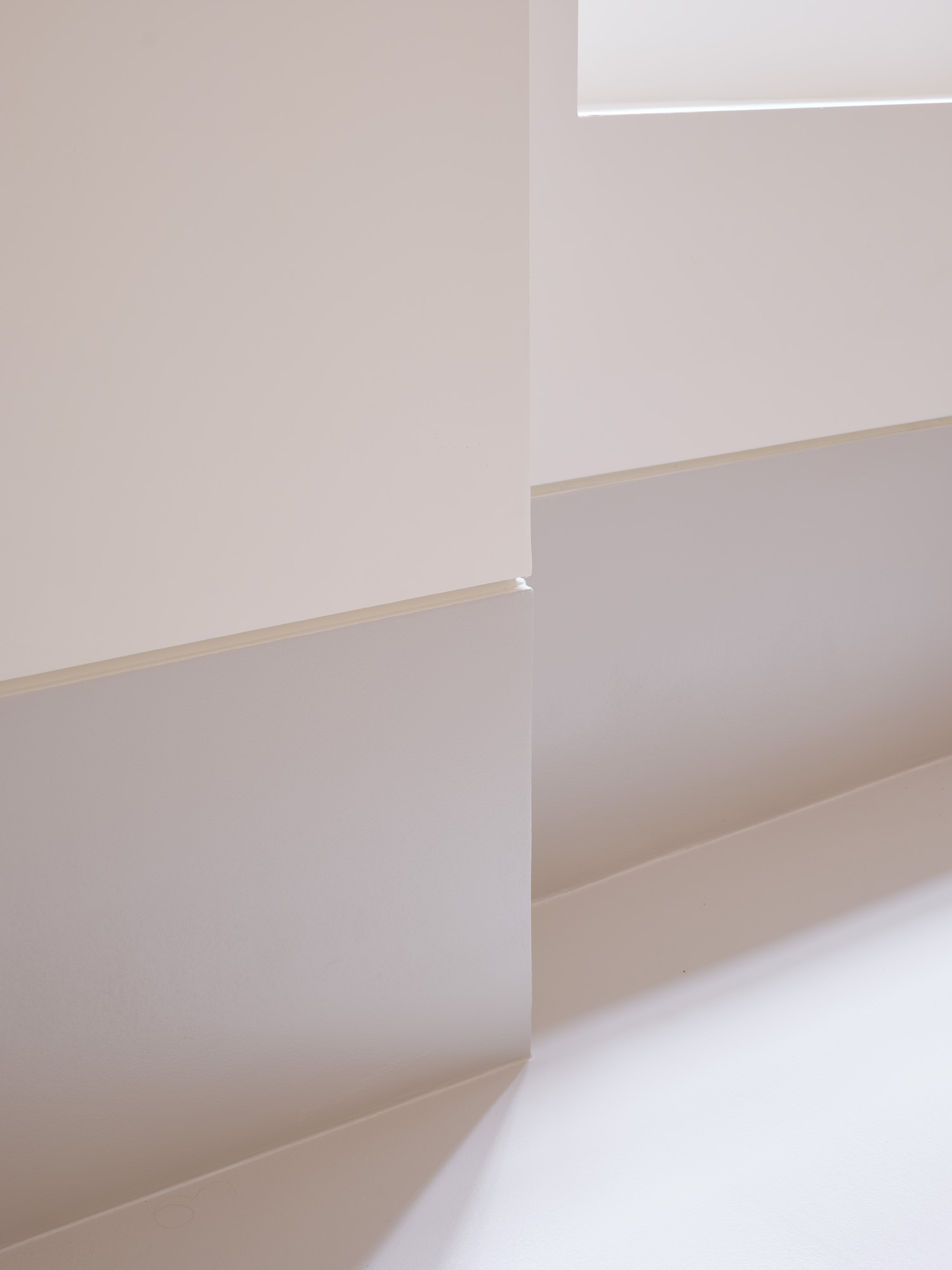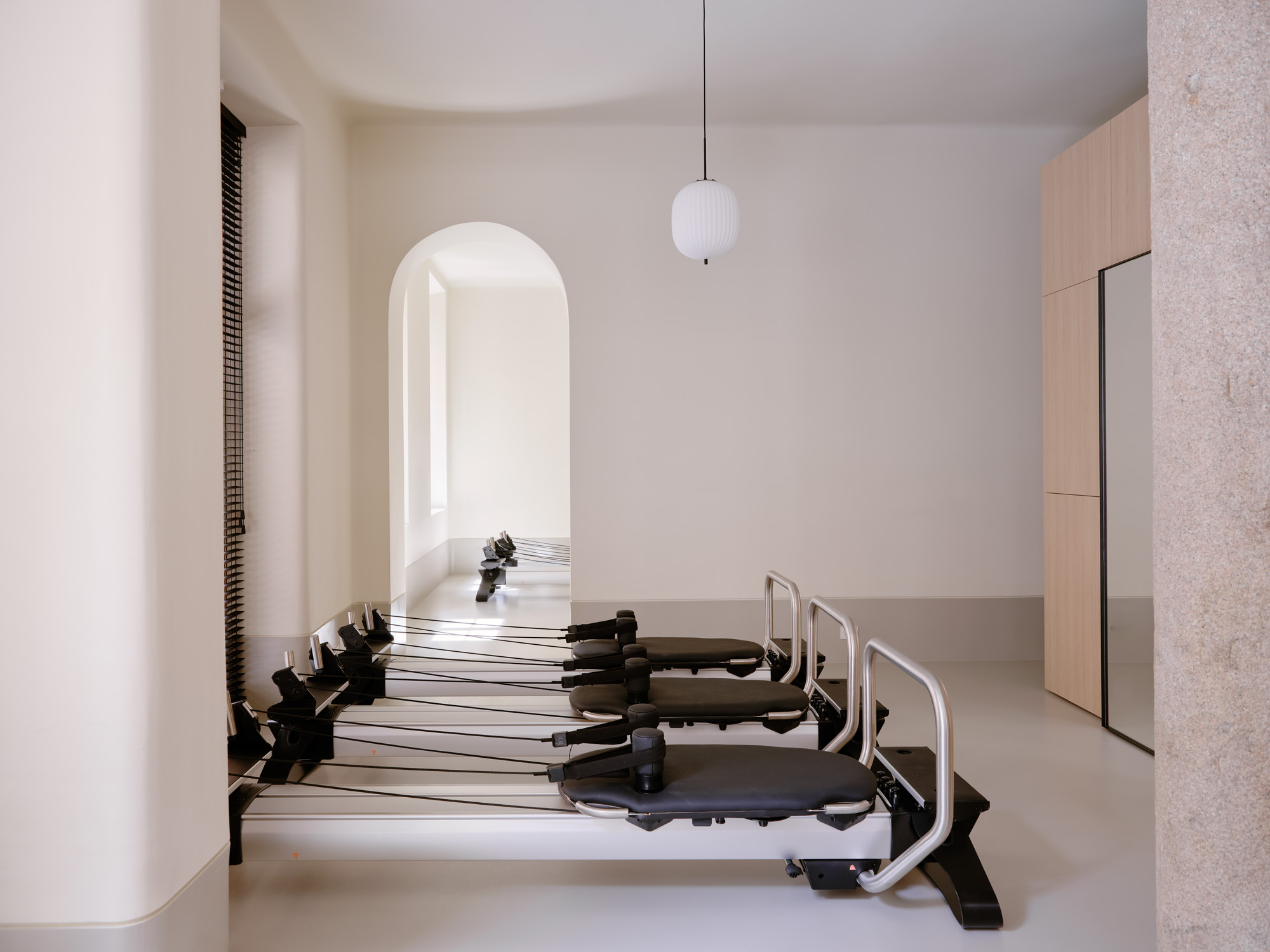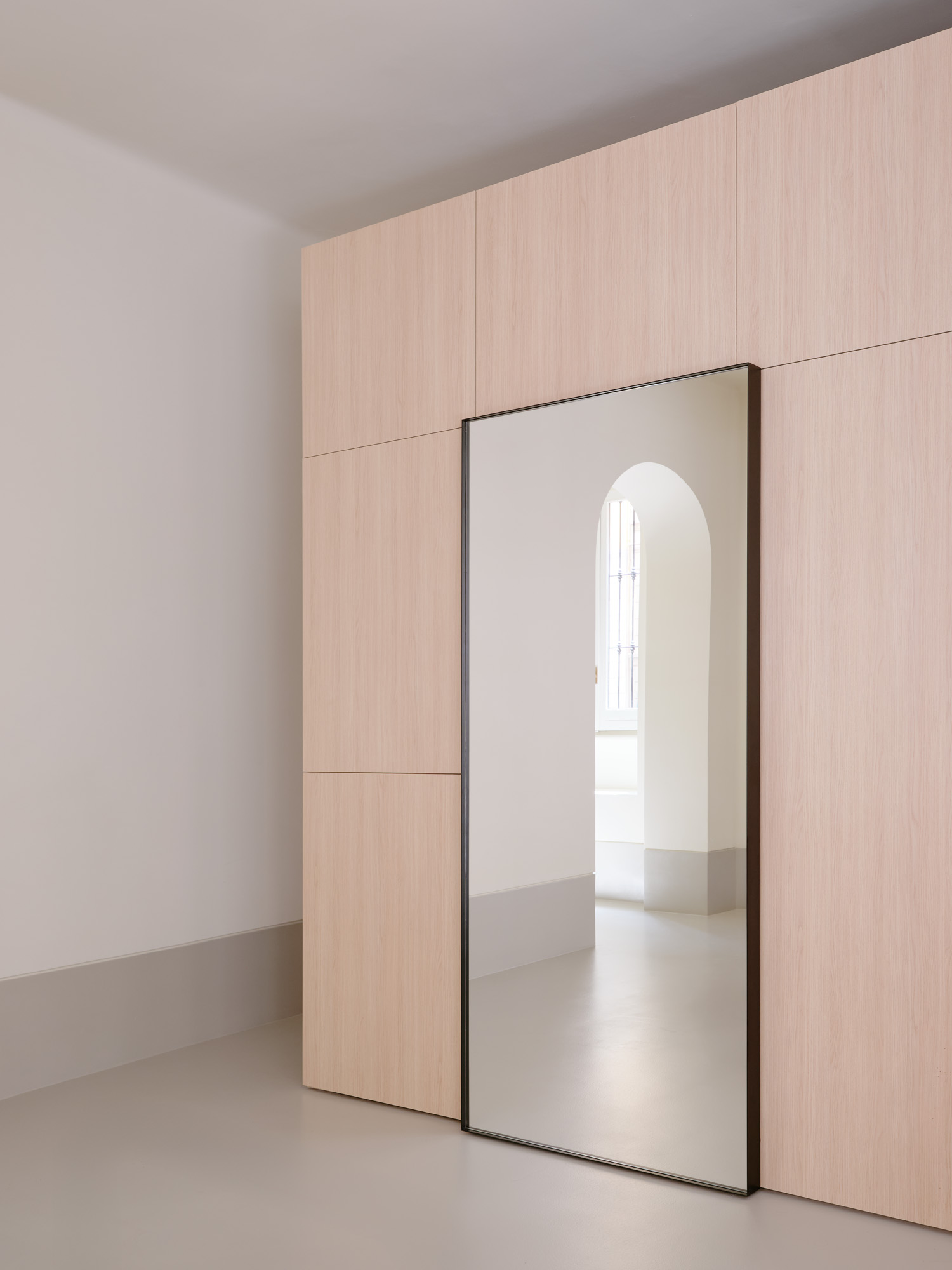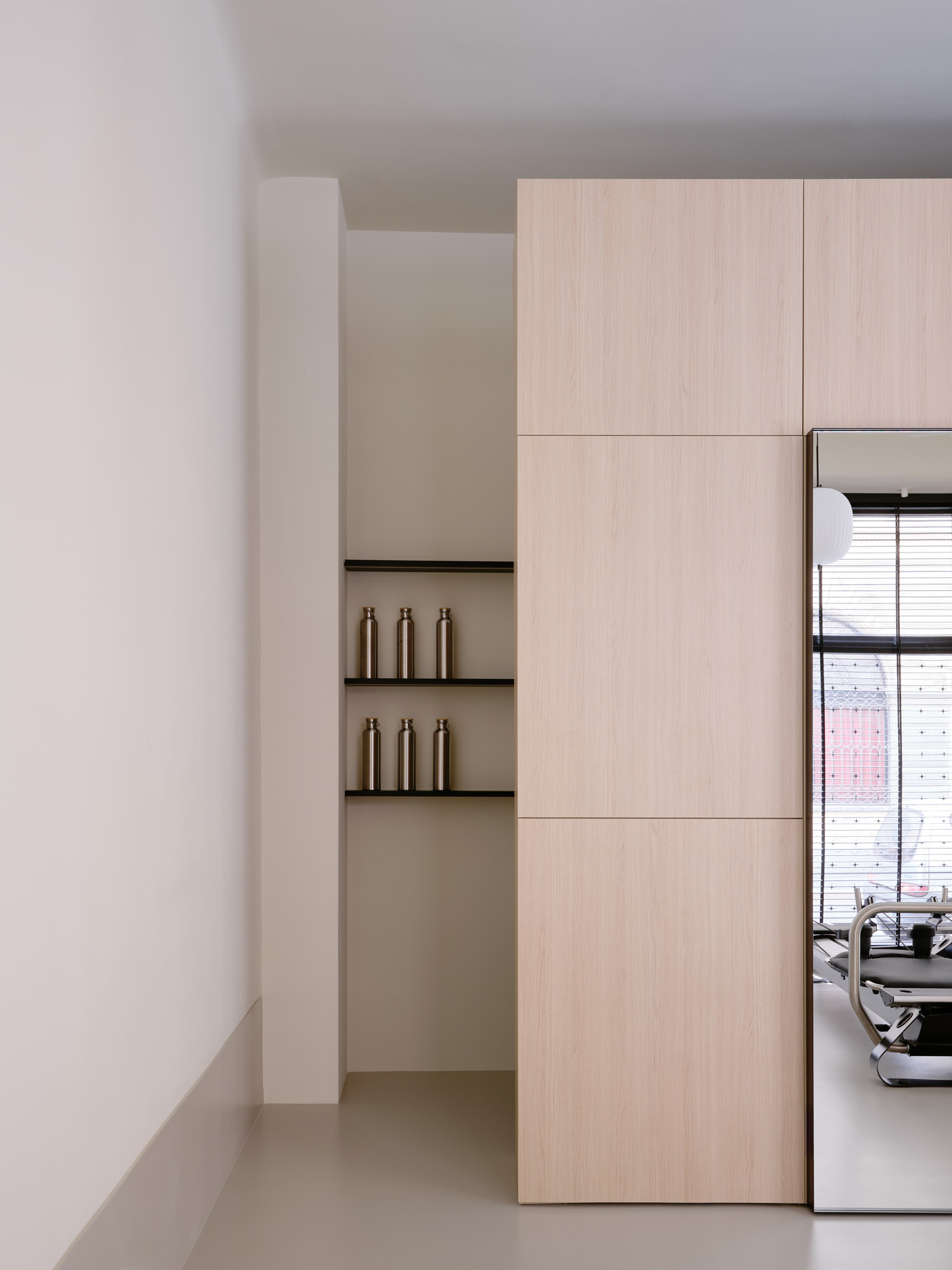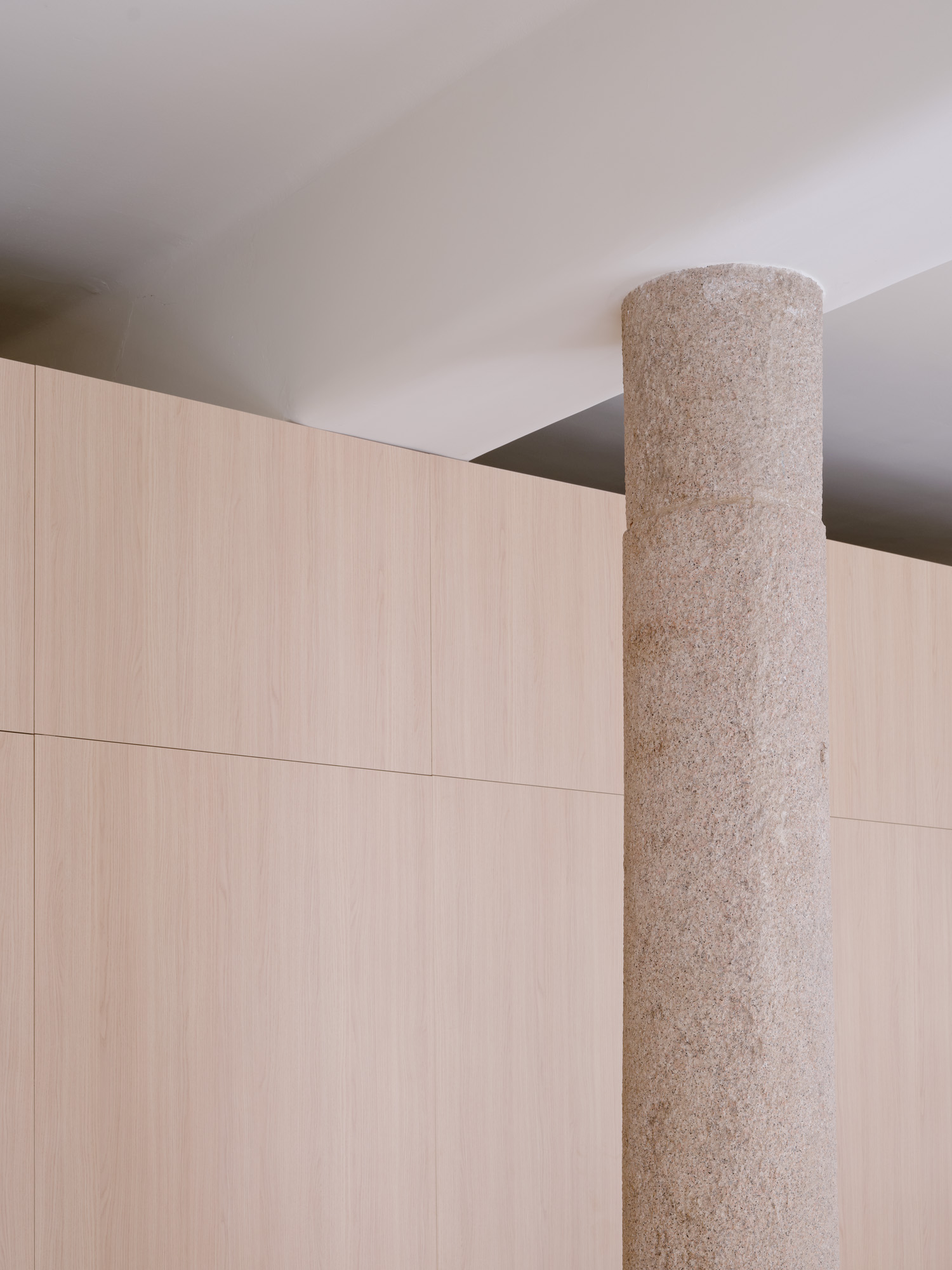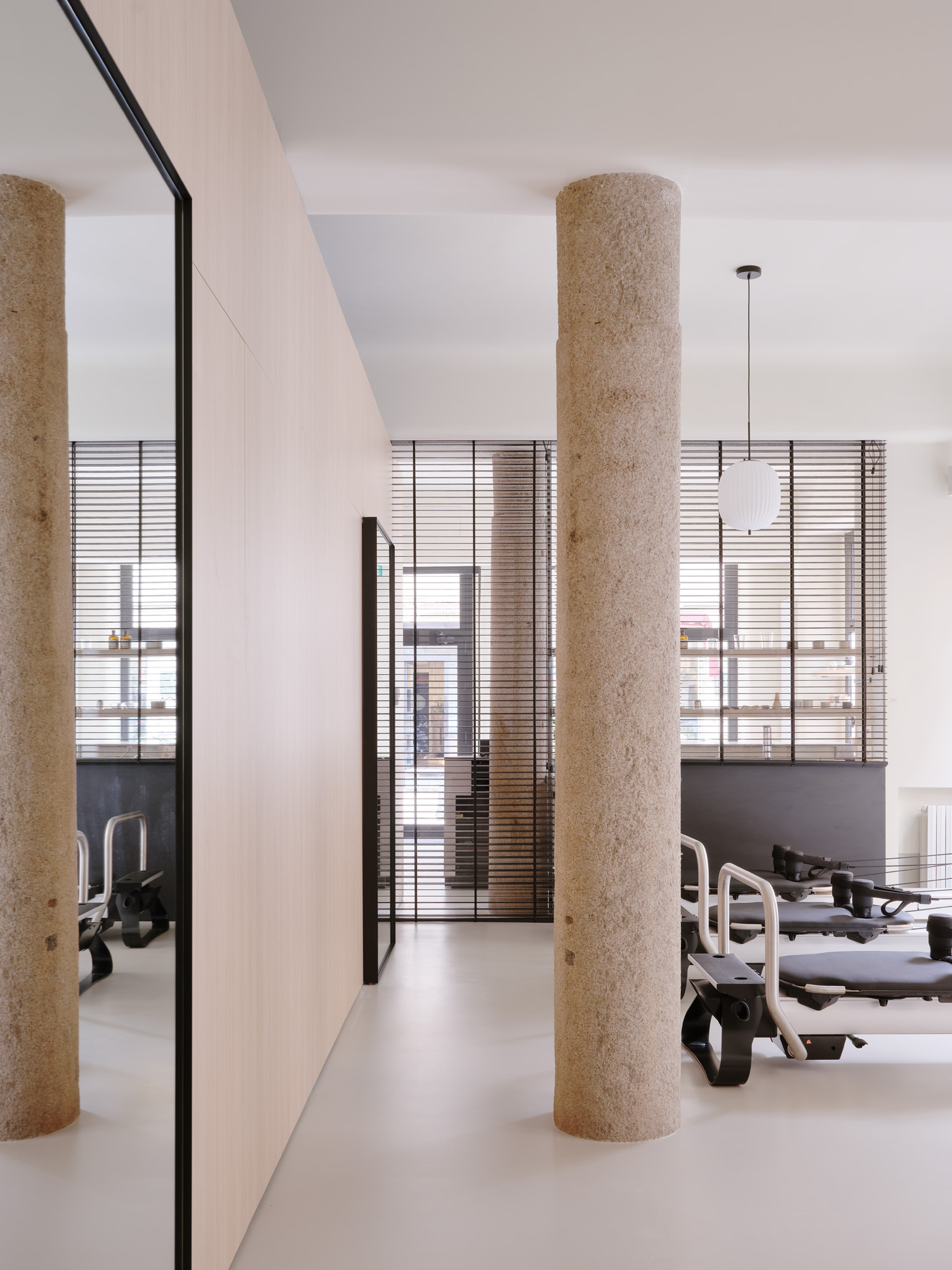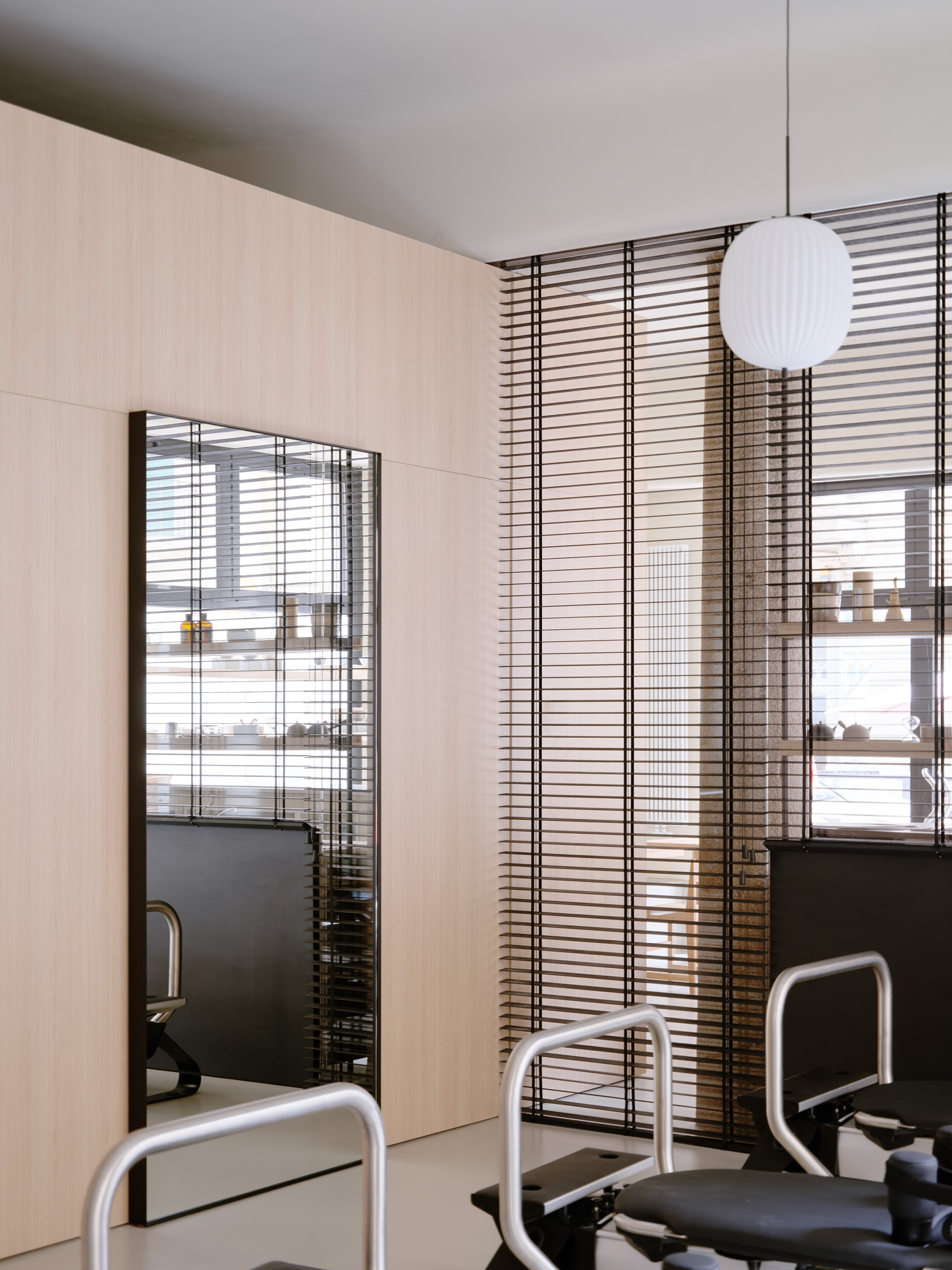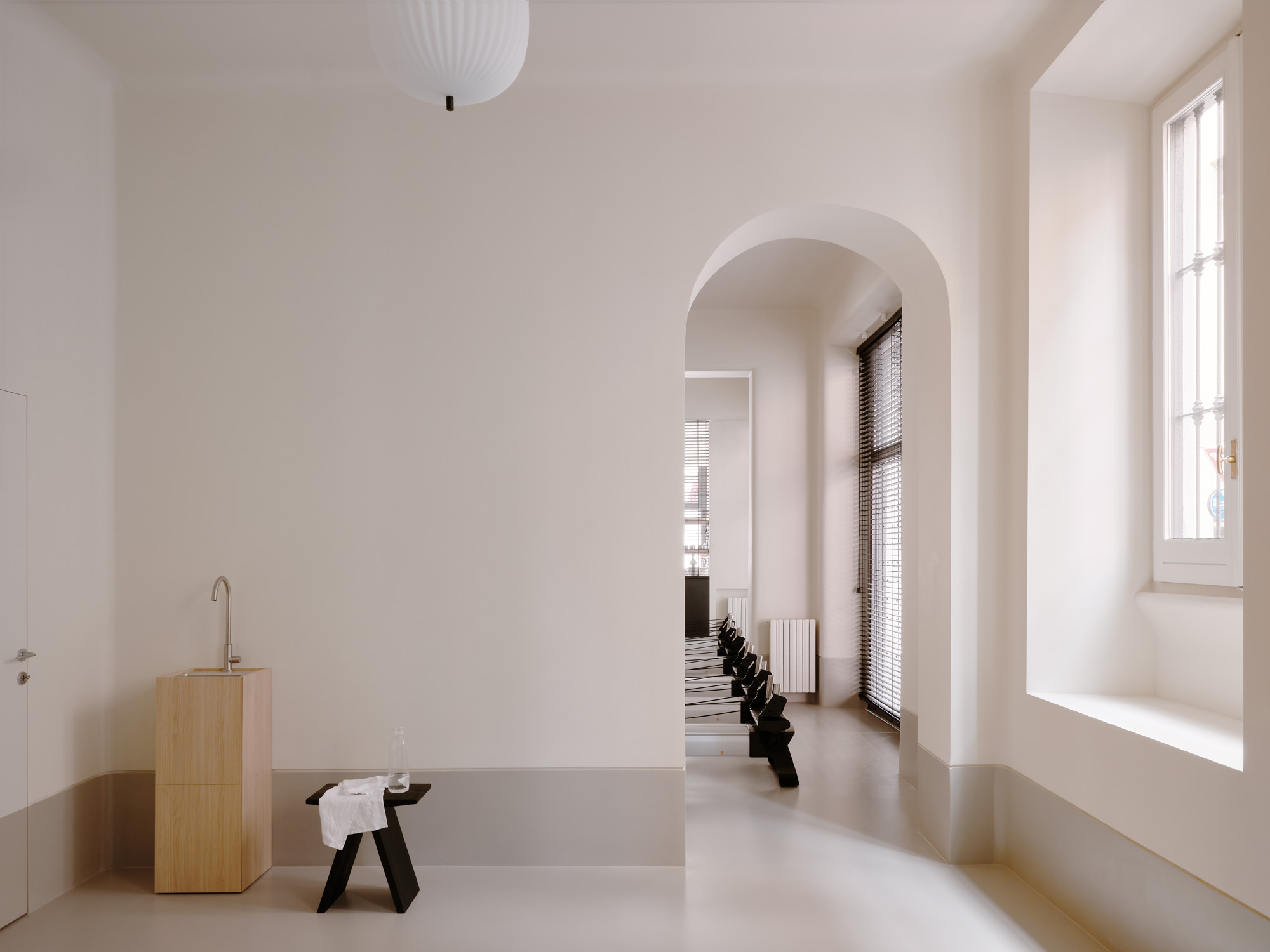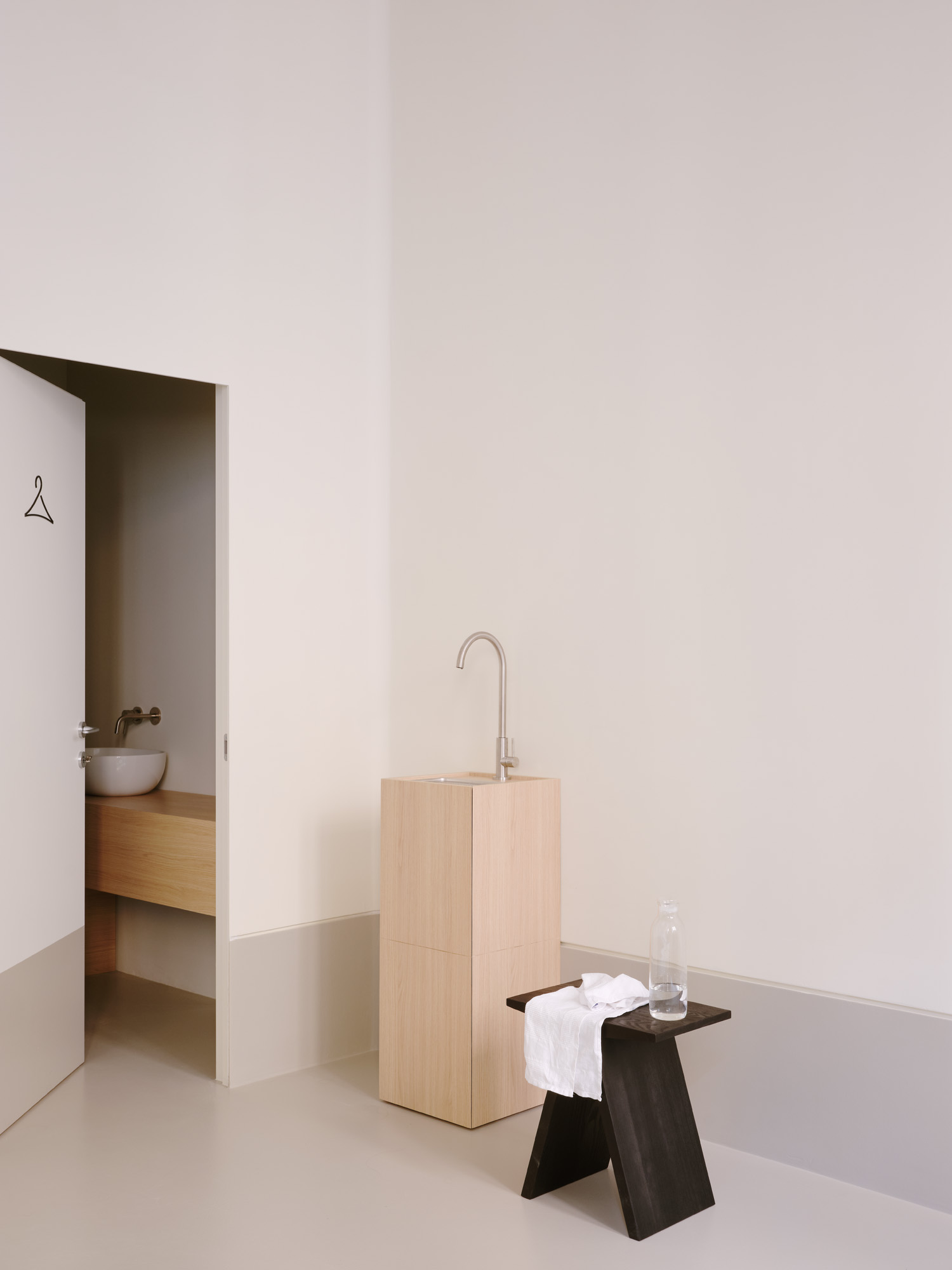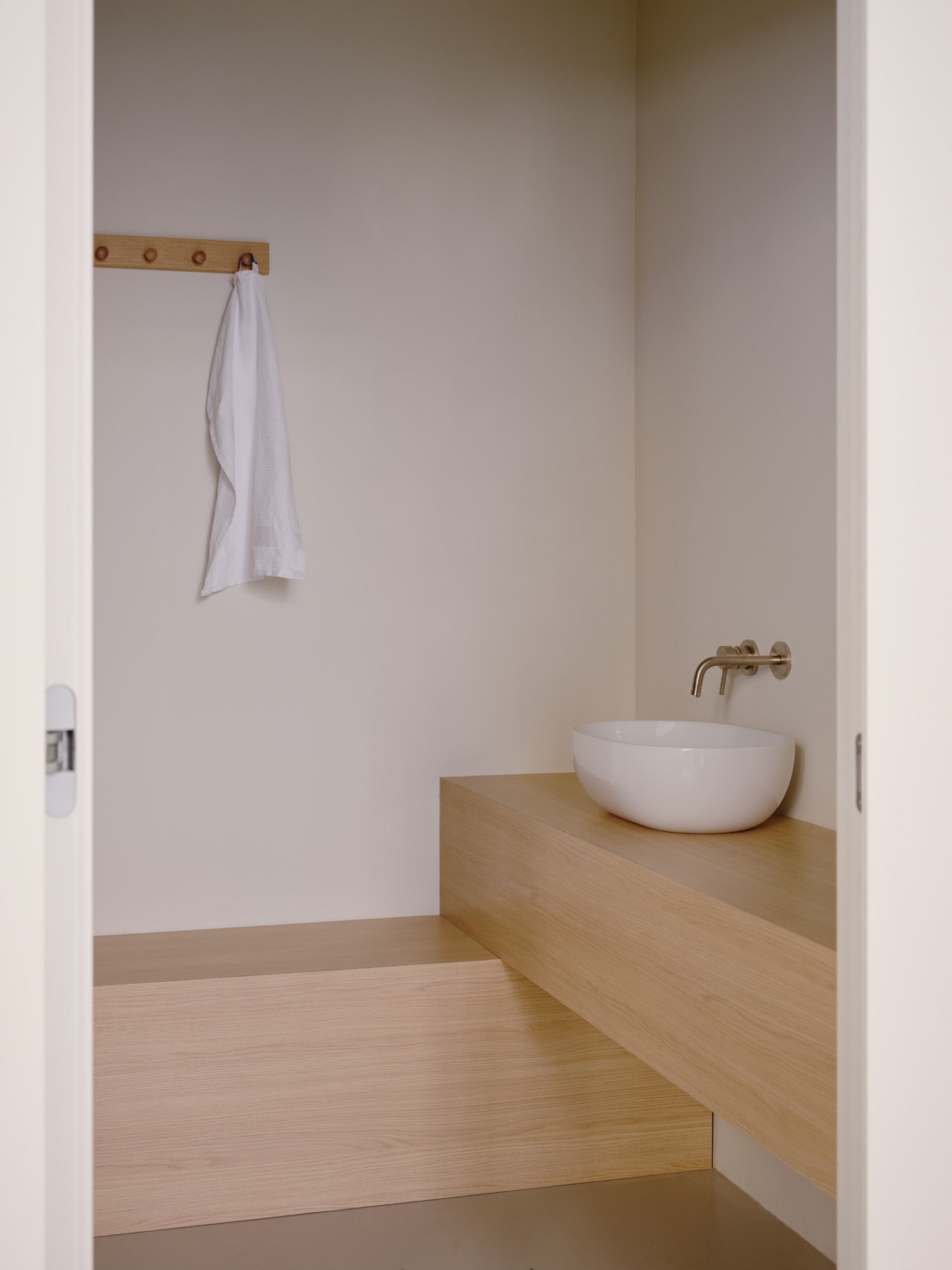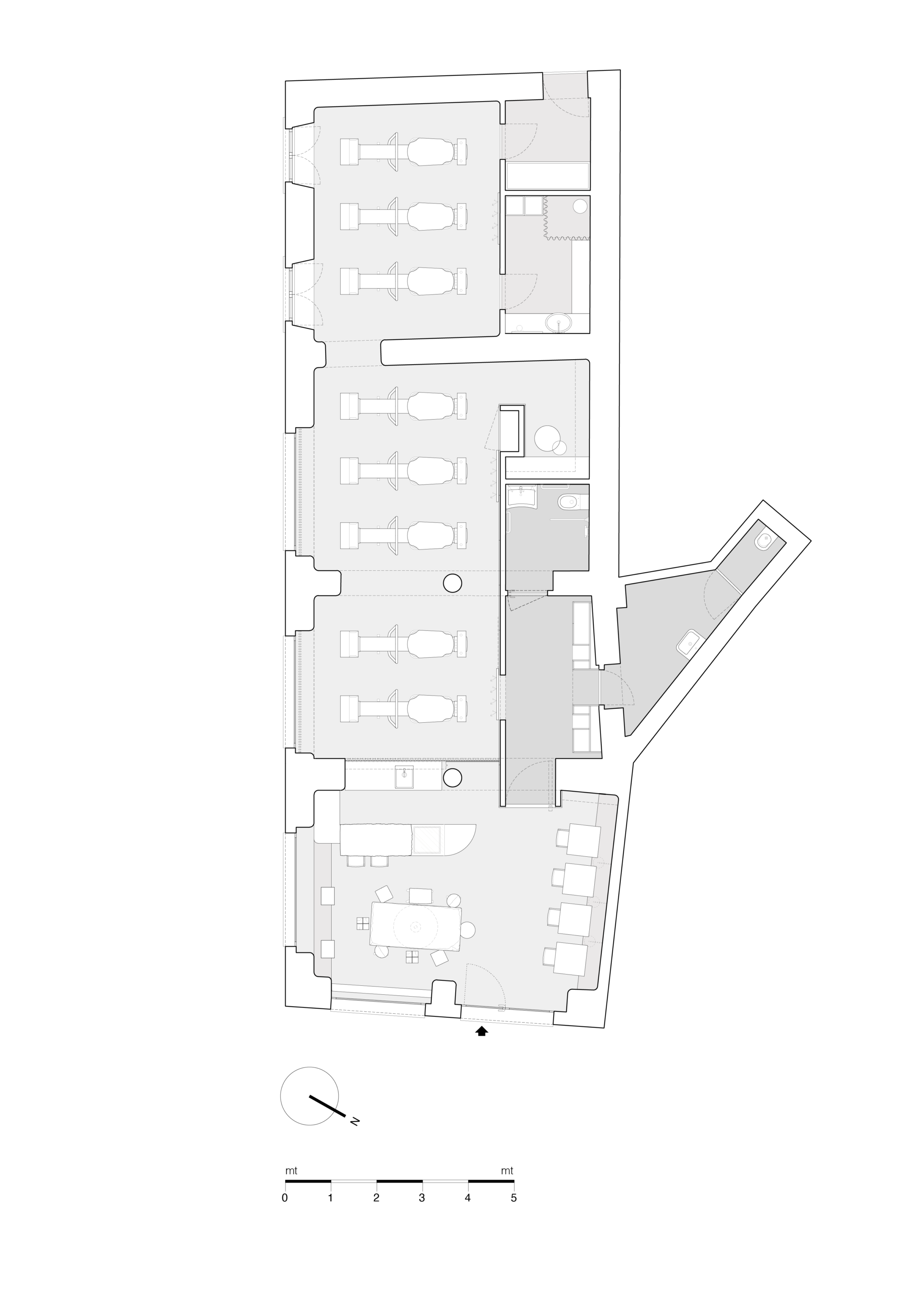NOÏ
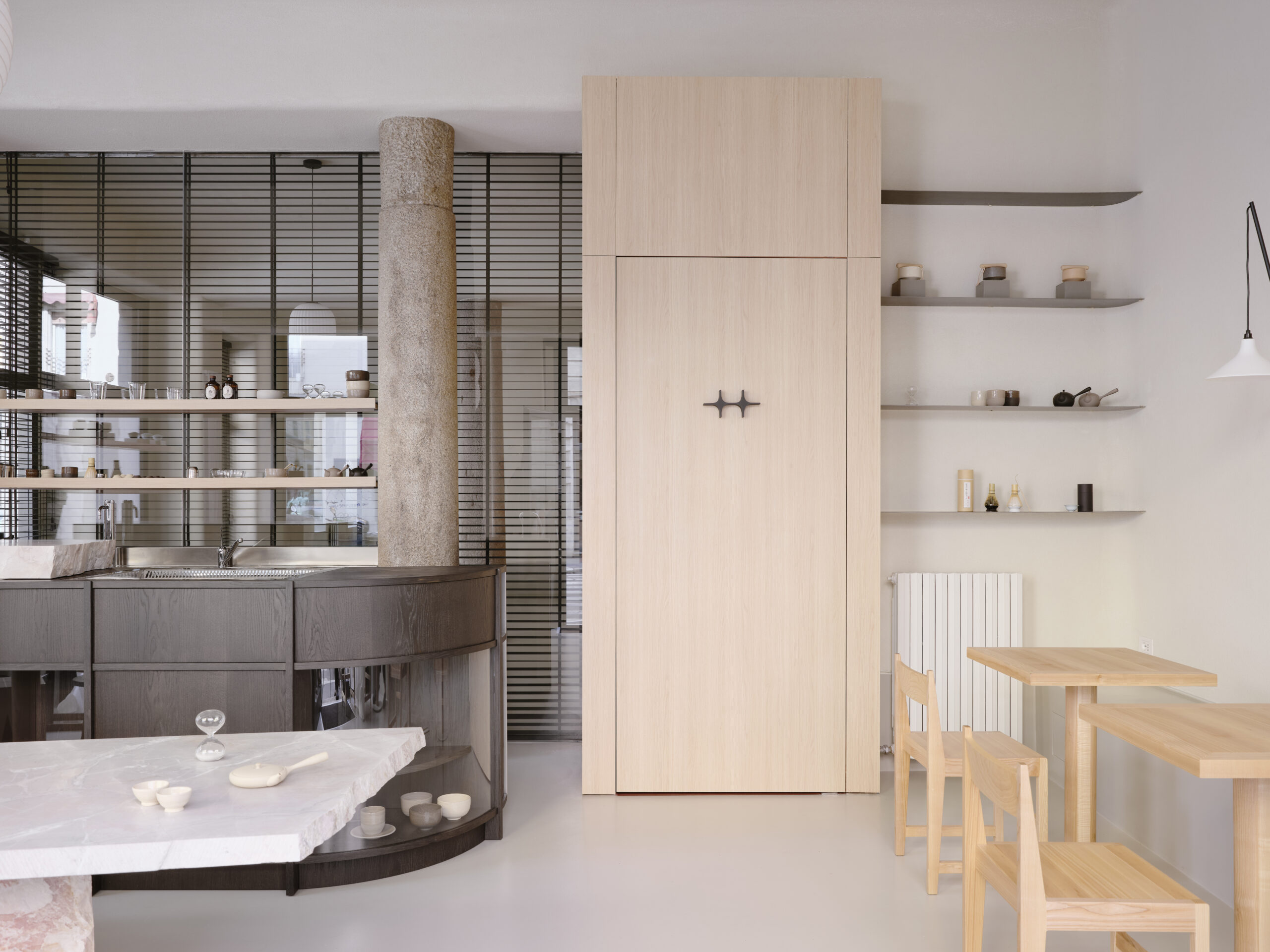
NOÏ
In the vibrant heart of Milan, within the lively Moscova district, a space with an iconic past is reborn as a new hybrid destination: a Japanese-inspired tea house that coexists harmoniously with a pilates reformer studio.
The project emerges from the transformation of a historic comic book store, once entirely lined with towering bookshelves. Today, that architectural shell reveals material and volumetric traces of great character, which have guided both the language and structure of the new design.
The transformation unfolds through a process of layering, where the original container and the new content overlap and interact in a respectful dialogue, striking a balance between permanence and transformation. Imperfections, raw materials, and the traces of time are not erased but enhanced, becoming integral to the space’s renewed identity. The functional program integrates discreetly, suggesting a contemporary aesthetic free of ostentation—one that inhabits the place with quiet confidence.
Fluid lines and softened corners define the internal partitions, contributing to a sense of continuity and welcome. The space opens into a unified and permeable environment, free from fragmentation, where perception flows freely and the spirit of the place clearly emerges.
A sharp horizontal line runs through the entire space, separating the lower portion—compact and smooth, clad in resin—from the upper section, finished with coarse lime plaster and enlivened by plays of light, transparency, and screens. The contrast between material solidity and visual lightness creates a soft, suspended atmosphere.
At the entrance, the visual and symbolic focal point is the bar counter—an embodiment of the project’s design language. It features a resin- and lime-finished plasterboard base, a central solid marble block with raw edges, and a crafted wooden section housing integrated display cases. A single element that encapsulates the entire design approach in one gesture.
Just beyond, a large custom-made communal table in raw marble anchors the center of the room. Sculptural and monolithic, it is composed of three stacked blocks—two legs and a top—and accompanied by deliberately mismatched stools. This spontaneous, informal gesture breaks the symmetry and encourages conviviality.
Behind the bar, a glass wall reveals the project’s second soul: the pilates studio. Entry is through a pivoting panel concealed within a wooden architectural partition that cuts across the space like a foreign body, creating sequences and new perspectives. Inside, a corridor entirely clad in deep red—walls, ceiling, and floor—guides the transition between the two functions, turning the act of passage into an immersive, almost theatrical experience.
The pilates room shares the same material palette as the tea house, reinforcing the project’s cohesive identity. A large exposed granite column and an arched opening between the two activity zones recall the space’s original structure. Here, the wooden partition is revealed in full, defining without dividing, allowing light and sightlines to flow freely.
NOII is conceived as a complex and harmonious organism, where architecture, materials, and function coexist through a logic of contrast and continuity: between raw and refined, between existing and new, between identity and transformation. A space that doesn’t seek spectacle, but coherence. One that welcomes and contains, suggests without imposing, and allows the space itself to tell its own story.
CREDITS:
Project: A I M
Location: Milano, Italy
Area: 135 sqm
Photographer: Francesca Iovene
General Contractor: EdilPan
Millworks and furniture: LM Service
Lighting Supplier: Medaluci
Marble Supplier: Bianco67
Regulatory Advisor: Kristine Hazel Macatangay
